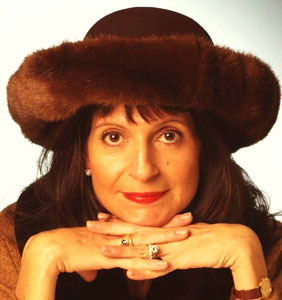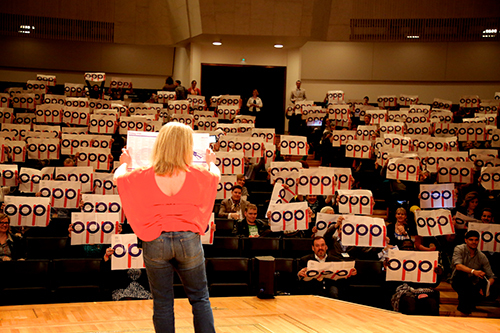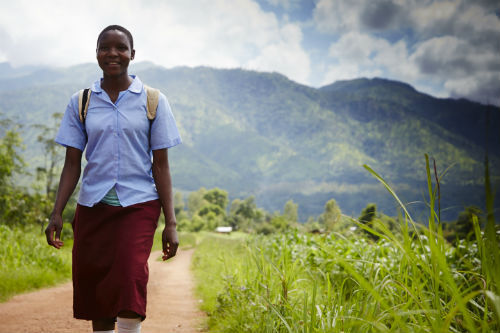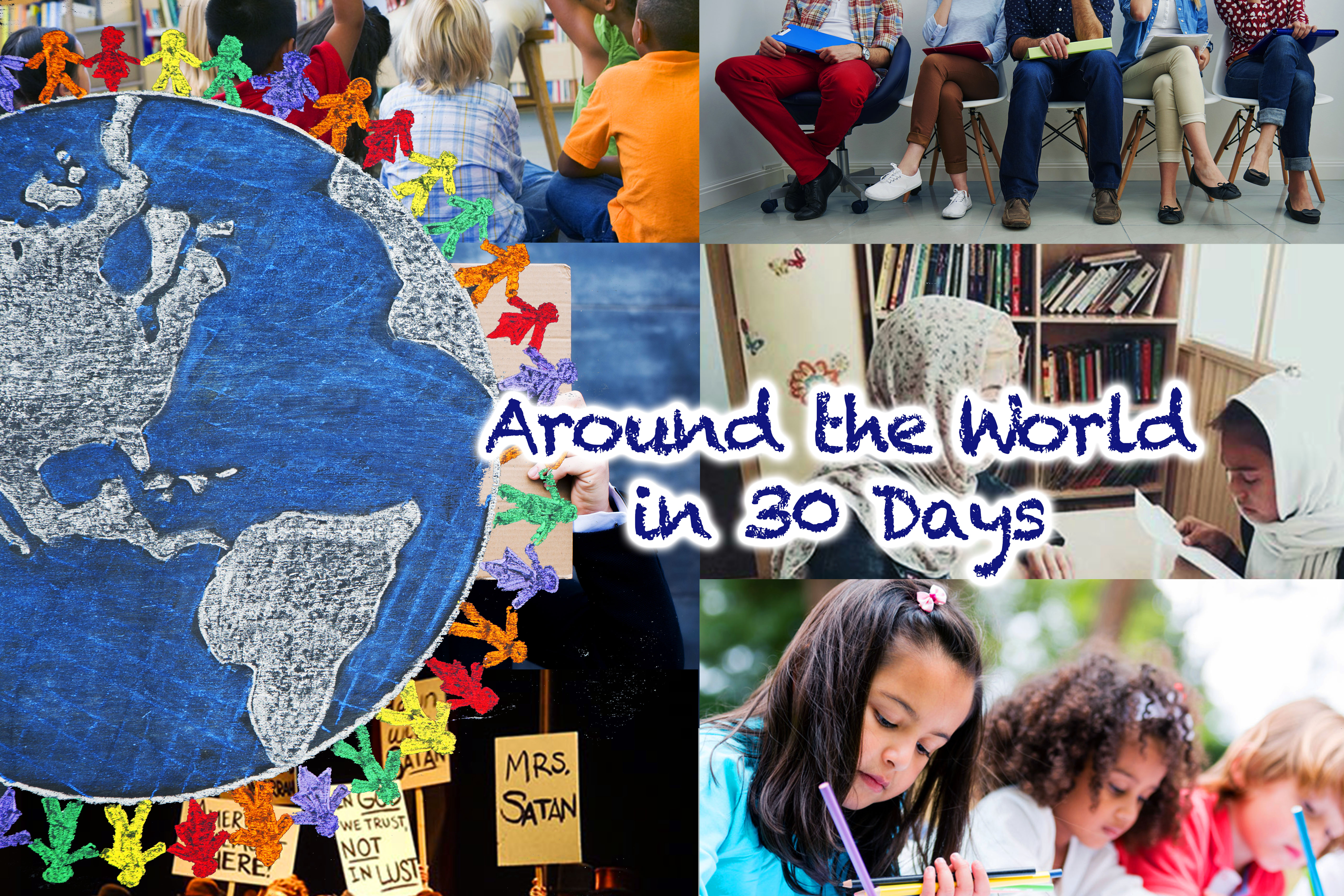
En Abril, Continué mis conversaciones con los líderes de opinión de todo el mundo en muchos asuntos incluyendo el papel de las pruebas estandarizadas, la desigualdad global, creatividad, y la innovación en el mundo de hoy.
I saw first hand the amazing work that creativa de Oklahoma is doing in that state to nurture the arts with schools, líderes empresariales y comunidades. This is the age of innovation and all our futures depend on it. The Tribeca Disruptive Innovation Awards and Anti-Summit workshops at the Tribeca Film Festival taught the audience profound lessons on innovation by sharing the stories of some of the world’s most impressive entrepreneurs. Nuestro Top 12 Global Teacher bloggers tackled the topics of standardized testing and learning in the classroom this month. I also researched one of many emerging initiatives to prepare graduate students for study abroad. I had an insightful chat with Howard Gardner and Pasi Sahlberg about what makes US and Finnish education so great. Y finalmente, I talked to WISE Education Prize winner, Ann Cotton, about the continued success of her organization in Africa, Camfed.
Finlandia is remarkable for not only routinely scoring among the top nations on the PISA exams, but also for being among the most equitable school systems in the world. The US is widely seen as having the world’s finest higher education institutions. Gardner señala que “unlike the case in other countries, donde la educación superior es esencialmente vocacional o profesional, American colleges and universities offer a liberal arts education — a broad set of courses which develop analytic, creativo, and communicative capacities.” According to Sahlberg, Finland’s success “is often built on research, innovación y modelos de otros países, most often from the United States.”
My Top 12 Los bloggers de maestros tackled the enduring question of how to balance test preparation with overall classroom goals. It turns out that many refuse to focus exclusively on the test, working instead on larger goals such as critical thinking and real world experience. Most found good test scores could fall into place as a byproduct of developing a love of learning. But almost all felt that standardized testing misses the mark on what’s important in the classroom.
If standardized testing is too caught up with traditional modes of judgment that make no sense to assess the present day student, then one has to hope that the high stakes testing system will innovate sometime soon. Mientras tanto, en el Premios a la innovación disruptiva de Tribeca (inspired by Clay Christensen’s Theory of Disruptive Innovation), the impressive list of global honorees talked about the innovation occurring in our world right now. I asked some of the honorees to share their innermost secrets on disruptive success. One of the many quotable comments was from Matthew Putman of Nanontronics: “Do not look solely to the leaders in your field. Deje que Henri Matisse le guíe tanto como Steve Jobs.”
We live in a global world and I had the pleasure of talking to Tom Roca (Associate Provost for Enrollment Services at Teachers College, Universidad de Columbia) about the International Pre-Graduate Program that Teachers College is launching this summer. Tom filled me in on the skills and knowledge sets that are most important to students preparing to teach and study in America, and noted that “Classroom discussions are often different from culture to culture. The expectations of the students might differ across cultures.”
Finalmente, I talked to the extraordinary Ann Cotton, Founder and President of Camfed, a world-renowned non-profit organization tackling poverty and inequality in sub-Saharan Africa. Ann discussed the continued importance of Camfed, the various changes in education inequality that have occurred since she began her work in Africa, and the benefits of the WISE Prize for Education she received at the end of last year. Her advice to newcomers who want to make a difference to global inequality is to “listen very hard and learn a great deal.” Ann’s practice of compassionate thinking and learning has allowed her to pave the way for great progress in African education. The best schools, in her experience, are always “looking at the wider individual. We have to think about the whole child because one will succeed in many different ways in life and if the education system puts academic measurement as the main way of measuring, then we place children and institutions under enormous strain.”

Únete a mí y reconocidos a nivel mundial los líderes de opinión, incluyendo a Sir Michael Barber (Reino Unido), DR. Michael Bloquear (EE.UU.), DR. Leon Botstein (EE.UU.), Profesor Clay Christensen (EE.UU.), DR. Linda Darling-Hammond (EE.UU.), DR. MadhavChavan (India), El profesor Michael Fullan (Canada), El profesor Howard Gardner (EE.UU.), El profesor Andy Hargreaves (EE.UU.), Profesor Yvonne Hellman (Países Bajos), Profesor Kristin Helstad (Noruega), Jean Hendrickson (EE.UU.), Profesor Rose Hipkins (Nueva Zelanda), Profesor Cornelia Hoogland (Canada), Honorable Jeff Johnson (Canada), Señora. Chantal Kaufmann (Bélgica), DR. EijaKauppinen (Finlandia), Secretario TapioKosunen Estado (Finlandia), Profesor Dominique Lafontaine (Bélgica), El profesor Hugh Lauder (Reino Unido), Señor Ken Macdonald (Reino Unido), Profesor Geoff Masters (Australia), Profesor Barry McGaw (Australia), Shiv Nadar (India), Profesor R. Natarajan (India), DR. PAK NG (Singapur), DR. Denise Papa (Estados Unidos), Sridhar Rajagopalan (India), DR. Diane Ravitch (EE.UU.), Richard Wilson Riley (EE.UU.), Sir Ken Robinson (Reino Unido), Profesor Pasi Sahlberg (Finlandia), El profesor Manabu Sato (Japón), Andreas Schleicher (PISA, OCDE), DR. Anthony Seldon (Reino Unido), DR. David Shaffer (EE.UU.), DR. Kirsten Immersive Are (Noruega), Canciller Stephen Spahn (EE.UU.), Yves Theze (LyceeFrancais EE.UU.), Profesor Charles Ungerleider (Canada), Profesor Tony Wagner (EE.UU.), Sir David Watson (Reino Unido), Profesor Dylan Wiliam (Reino Unido), DR. Marcos Wormald (Reino Unido), Profesor Theo Wubbels (Países Bajos), El profesor Michael Young (Reino Unido), y el profesor Zhang Minxuan (De China) a medida que exploran las cuestiones de educación cuadro grande que todas las naciones se enfrentan hoy.
La Búsqueda Global para la Educación Comunitaria Página
C. M. Rubin es el autor de dos ampliamente leído serie en línea por la que recibió un 2011 Premio Upton Sinclair, “La Búsqueda Global para la Educación” y “¿Cómo vamos a Leer?” Ella es también el autor de tres libros más vendidos, Incluido The Real Alice in Wonderland, es el editor de CMRubinWorld, y es una Fundación Disruptor Fellow.
Siga C. M. Rubin en Twitter: www.twitter.com/@cmrubinworld





Comentarios recientes